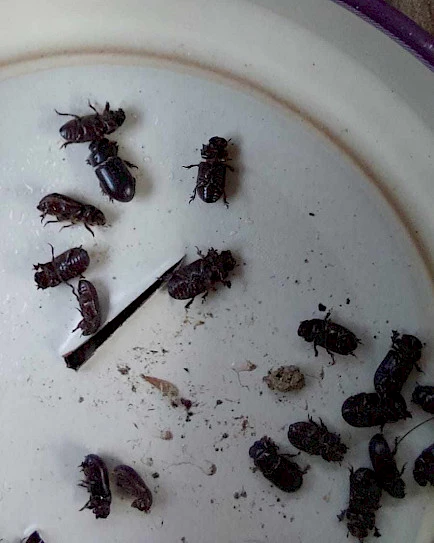The beetles attacking Northern Cyprus turned out to be coprophagous
Scientists from the Tashkent Nature Park made a statement regarding the clusters of black beetles observed in different parts of the island.
Specialists identified the name of the insects invading the homes of Northern Cyprus residents. As a result of preliminary research conducted by teams from the nature park through collecting samples from various points, it was determined that these beetles belong to the subfamily Aphodiinae of the Scarabaeidae family.
“The DoğaPark teams collected samples from various points on the island. During the preliminary research, it was established that these beetles belong to the subfamily Aphodiinae of the Scarabaeidae family,” the nature park statement said.
Park rangers note that from previous scientific research, it is known that there are many species belonging to this subfamily in the natural fauna of Cyprus. However, the behavioral and scientific fact is that different insect species sometimes gather together for various reasons, such as protection against predators, colony formation for reproduction, or reaction to sudden microclimatic changes.
“While some Aphodiinae species are known as agricultural pests, there is no evidence to suggest that these organisms are directly harmful to human health,” the conclusion of the Arachne-Entomological Research Station of the Cyprus Wildlife Research Institute said.
Aphodiinae is a subfamily of dung beetles, comprising several thousand species of small or medium-sized beetles found worldwide. In North America, 350 species from 26 genera have been noted. Aphodiinae are the most common beetles living in semi-dry dung heaps.
They are coprophagous and saprophagous—insects feeding on decomposing plant tissues, excrement, or other animal byproducts.


You may also be interested in:
- Power outage in two settlements of Cyprus
- Those who use the property of Turkish Cypriots on the Greek Cypriot side will be arrested
- A new species of tick has been discovered in Turkey
- Turkey has become one of the most popular destinations for dental treatment among Russians
- "South Cyprus uses the property issue as a political weapon," said academic Emete Gözügüzelli.

